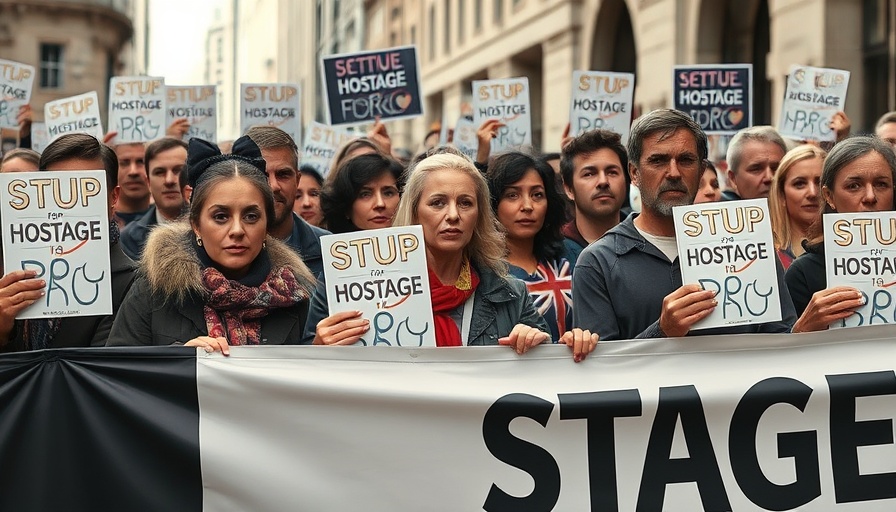
High-Tech Meets Humanity: A Call for Action
In an unprecedented show of solidarity, leading Israeli tech firms and venture capital funds have mobilized in support of families impacted by the ongoing conflict, organizing a nationwide strike aimed at halting economic activity to demand the immediate release of hostages and soldiers. Scheduled for August 17, this initiative signals a new chapter where the aspirations of the tech sector intersect with national moral responsibility. Companies participating include giants like Meta, Wix, and Fiverr, alongside various venture capital funds.
Understanding the Implications of the Strike
This strike is not merely a protest; it showcases the power of collective action within a thriving tech ecosystem. With the High-Tech Headquarters advocating for this movement, it highlights how economic motivations and ethical imperatives can drive significant societal change. The call from the High-Tech Headquarters emphasizes the urgency of the situation, aligning the core values of mutual responsibility with immediate action.
The Intersection of Technology and Social Responsibility
As the narrative unfolds in Israel, tech companies find themselves in a unique position to leverage their resources and networks in advocating for humanitarian efforts. Historically, industries have underscored their contributions to society, yet this strike reflects a shift towards more direct involvement in pressing social issues. By promoting a stance against the violence and advocating for peace, these companies not only bolster their corporate social responsibility (CSR) initiatives but also position themselves as torchbearers in this critical juncture.
Future Economic and Social Trends
Looking ahead, this mobilization may reshape perceptions of corporate involvement in social issues. Should the strike gain traction and lead to favorable outcomes, it could inspire similar actions across other sectors worldwide. This phenomenon might serve as a case study in how technology-driven organizations can effectively merge profit-driven goals with ethical imperatives, setting a benchmark for global corporate practices.
Conclusion: Reshaping Investment Landscape
The implications of this strike extend beyond immediate humanitarian concerns; it also opens avenues for potential investment trends that favor companies actively participating in social responsibility. Investors would do well to consider the long-term benefits of engaging with enterprises that prioritize ethical considerations alongside their business objectives.
 Add Row
Add Row  Add
Add 


Write A Comment